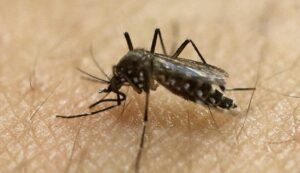A separate case of Japanese encephalitis has been reported in Delhi
New Delhi: Officials have clarified that there is no epidemic in the city, despite reports of a single case of Japanese encephalitis (JE) in a 72-year-old man from Uttam Nagar, West Delhi. They further stress that the majority of JE cases recorded in Delhi come from neighboring states.

Officials advise people not to worry and have put in place public health precautions in accordance with national recommendations.
A 72-year-old man from Uttam Nagar, West Delhi, who was admitted to AIIMS on November 3, 2024, is at the center of this case.
During his hospital stay on November 6, 2024, the patient, a diabetic with a history of chronic illnesses and coronary artery disease, tested positive for JE using IgM ELISA. After being cared for, he was released on November 15.
Infected Culex mosquitoes transmit the JE virus, which is mostly carried by ducks and amplified in pigs, to humans. The virus does not transmit via human-to-human contact, despite the fact that it may induce neurological and feverish disorders.
In response to public fears, authorities reassured them that there hasn’t been an epidemic in Delhi and that the majority of cases recorded had come from other states.
“On occasion, rare instances from tertiary institutions such as AIIMS, RMLH, and SJH have been recorded. To control the problem, all public health measures are in place, including those recommended by the National Centre for Vector-Borne Diseases Control (NCVBDC), authorities said.
According to statistics from the Integrated Disease Surveillance Programme (IDSP), Assam accounted for 925 of the 1,548 JE cases reported nationwide in 2024. There are 24 states and union territories where the illness is most prevalent.
Two doses of the JE vaccine have been administered to children as part of the Universal Immunization Program since 2013, and adult immunization has been implemented in high-burden areas in an effort to reduce the illness. In spite of this, JE is still a problem in certain areas since it may cause serious neurological problems and even death.
When someone has Japanese encephalitis, they usually only have mild symptoms or none at all. Moderate symptoms include fever and headache; severe symptoms include spastic paralysis, stiff neck, nausea, vomiting, and difficulty speaking.
Wearing long sleeves, using mosquito nets, insecticides, and repellents, cleaning standing water and drains, and keeping the area surrounding their dwellings clean are all ways to avoid the disease.
In order to avoid getting JE, vaccination is recommended. The Indian Universal Immunization Programme (UIP) now includes a vaccine against the Japanese encephalitis virus (JEV) in regions where it is common.
The state with the most JE-related fatalities in 2006 was Assam. Nearly 1,500 people had died from the illness.





